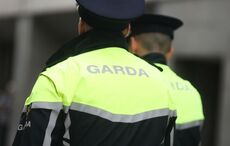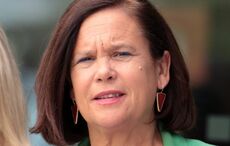Never before seen documents related to the hunger strikes in Belfast in 1981 have been kept secret until now.
The recently discovered documents, which were released by the Northern Ireland Office, revel how the English government dealt with the IRA hunger strike.
The documents, which were released under the Freedom of Information Act, show how the Margaret Thatcher's government was determined to present a strong face in public while trying to come to an arrangement with the IRA in secret.
It had been alluded to in the past that the IRA sacrificed the hunger strikers to boost their electoral strategy and that they never told the strikers about offers provided by England to end the strikes.
The documents show that the government worked on many levels with various Irish organizations including the Irish Commission for Justice and Peace (ICJP) as well as the IRA directly.
The documents also reveal that offers were made directly to the IRA rather than the hunger strikers themselves.
They also reveal the central role played by Provisional IRA leader Brendan McFarlane.
Other information in the documents show that two weeks before the death of Kevin Lynch, a member of the INLA, the hunger strikers were offered a chance to clarify the latest position in front of relatives and clergy, but the prisoners' insistence that they would only meet in McFarlane's presence was rejected by the Northern Ireland Office officials.
The 32 new documents say that the government felt the prisoners were acting under orders and that McFarlane would not accept any negotiations excpet for the "five demands."
The five demands were: the right not to wear a prison uniform; the right not to do prison work; the right of free association with other prisoners, and to organise educational and recreational pursuits; the right to one visit, one letter and one parcel per week; full restoration of remission lost through the protest.
A few days before the death of famous hunger striker, Bobby Sands, communication to the NIO mentioned talks with an Irish government representative, saying that: "Nally agreed that while there was a concern in the south over the consequences of Sand's death, support for the hunger strikers was very limited. However, Sand's death, particularly if followed by Hughes, could change things."
An extract from a letter - previously released to the Sunday Times - dated July 8, 1981, from 10 Downing Street to the NIO stated that Thatcher had met with the Secretary of State Humphrey Atkins to form an agreement.
The Secretary of State, "had concluded that we should communicate with the PIRA over night a draft statement enlarging upon the message of the previous evening but in no way whatever departing from its substance. If the PIRA accepted the draft statement and ordered the hunger strikers to end their protest the statement would be issued immediately.
"If they did not, this statement would not be put out but instead an alternative statement reiterating the Government's position as he had set it out in his statement of 30 June and responding to the discussions with the Irish Commission for Justice and Peace would be issued. If there was any leak about the process of communication with PIRA, his office would deny it."
A later telegram from the NIO said a statement had been read adding: "we await provo reactions (we would be willing to allow them a sight of the document just before it is given to the prisoners and released to the press). It has been made clear (as the draft itself states) that it is not a basis for negotiation."
Another document records a statement read to prisoners from the Secretary of State, who said no moves could be made under the duress of a hunger strike but "making sure that the protesters were aware of what was available".
It said: "Little expansion of association was contemplated but the suggestion of association of adjacent wings (made by the ICJP) was taken on board. On clothing the 'possibility of further development' had not been ruled out. On work, no-one would be excluded but the commitment was given to add to the range of activities, including examination of the ICJP's suggestions. No more than the existing 1/5 restoration of lost remission to ex-protestors was promised."
It added: "The prisoners were given an opportunity to discuss the document among themselves and also saw McFarlane for a time. Lynch and Doherty - the 2 most determined strikers - said afterwards that there was nothing in it for them."
A document previously released showed that Thatcher planned to make another approach to the IRA through a secret channel but changed her mind amid fear that the offer would be made public.
A later letter- dated July 18- from Downing Street said the following:
"The official would set out to the hunger strikers what would be on offer if they abandoned their protest. He would do so along the lines discussed with the Prime Minister last week. He would say that the prisoners would be allowed their own clothes, as was already the case in Armagh prison, provided these clothes were approved by the prison authorities. (This would apply in all prisons in Northern Ireland).
"He would set out the position on association; on parcels and letters; on remission; and on work. On this last point he would make it clear that the prisoners would, as before, have to do the basic work necessary to keep the prison going: there were tasks which the prison staff could in no circumstances be expected to do. But insofar as work in the prison shops was concerned, it would be implicit that the prisoners would be expected to do this but that if they refused to do it they would be punished by loss of remission, or some similar penalty, rather than more severely...
The document said that another attempt should be made to explain the situation to the hunger strickers however, following further discussions "it was drawn to the Prime Minister's attention that any approach of the kind outlined above to the hunger strikers would inevitably become public whether or not it succeeded, the Prime Minister reviewed the proposal on the telephone with the Secretary of State and decided the dangers in taking an initiative would be so great that she was not prepared to risk them.
"The official who went in to the prison could repeat the Government's public position but could go no further."




Comments